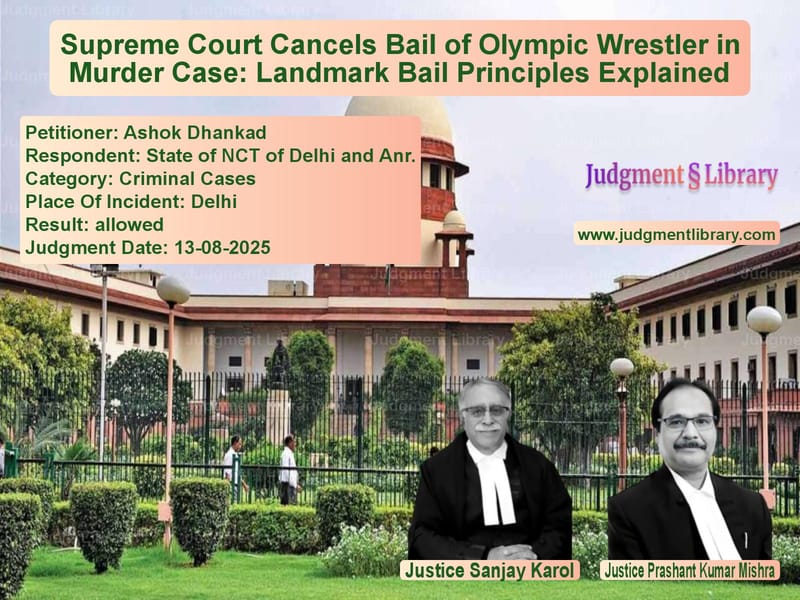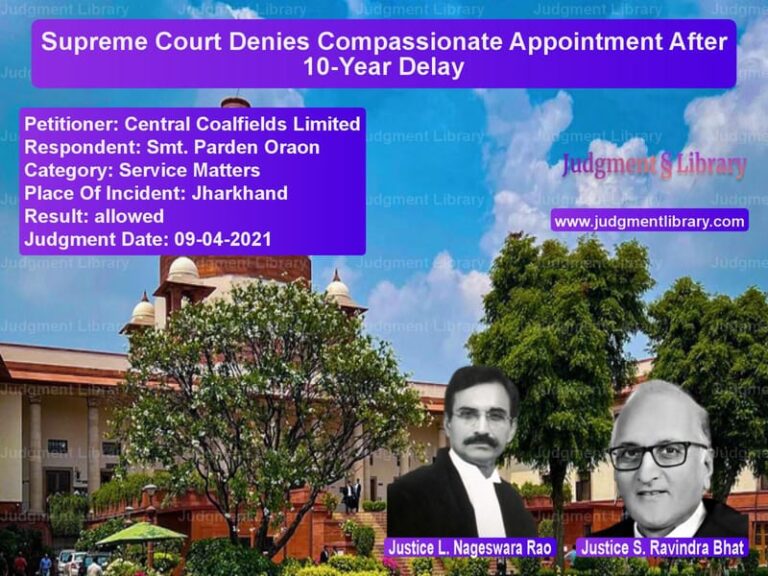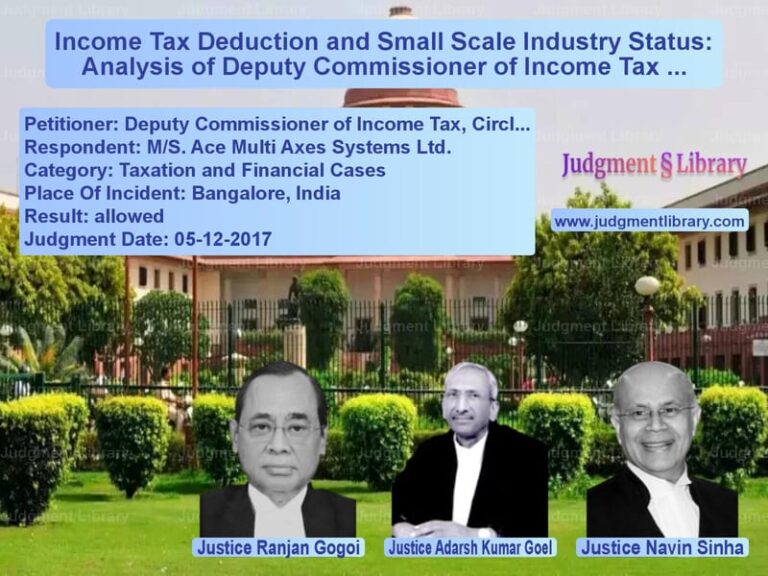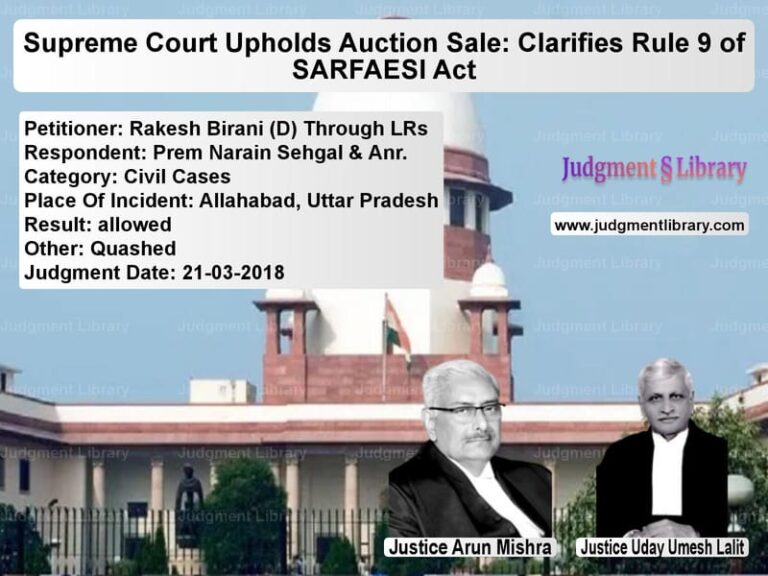Supreme Court Cancels Bail of Olympic Wrestler in Murder Case: Landmark Bail Principles Explained
In a landmark judgment that clarifies the delicate balance between personal liberty and societal interest in criminal cases, the Supreme Court of India recently set aside the bail granted to an Olympic wrestler accused in a brutal murder case. The ruling, which came in August 2025, provides crucial guidance on when courts should grant bail in serious criminal cases and what factors must be considered while making such decisions.
The case involved a horrific incident that occurred on the intervening night of May 4-5, 2021, when according to prosecution allegations, the accused wrestler Sushil Kumar and his associates abducted several individuals from Shalimar Bagh and Model Town in Delhi. The victims were taken to Chhatrasal Stadium where they were violently attacked with wooden lathis and sticks, with prosecution claiming there was an intention to kill due to personal enmity. The situation escalated when gunshots were fired, prompting a PCR call where the caller reported that two men had fired gunshots near Chhatrasal Stadium.
When ASI Jitender Singh arrived at the crime scene, he found five vehicles but no individuals present. A blood-stained ‘parna’ was recovered from the accused’s registered vehicle, while a loaded double barrel gun with three live cartridges and two wooden sticks were found from other vehicles belonging to his associates. Blood samples were collected from various spots at the crime scene. The investigation revealed that the injured persons had been taken to BJRM Hospital, where one of them, Mr. Sagar, succumbed to his injuries. The postmortem report stated the cause of death as cerebral damage due to blunt force/object impact, leading to the addition of Section 302 (murder) of IPC against the accused and his associates.
During investigation, one of the associates, Mr. Prince, was arrested, and a mobile device recovered from his possession contained a video recording of the incident allegedly depicting the accused attacking the injured persons with deadly weapons. The Forensic Science Laboratory examination concluded that no sign of edit/adulteration/tampering was observed in the video file. The accused remained absconding during investigation, resulting in non-bailable warrants being issued against him on May 15, 2021, and the Delhi Police announcing a cash reward for information about his whereabouts on May 18, 2021. He was finally arrested on May 23, 2021.
The legal battle reached the Supreme Court when the complainant, Ashok Dhankad, challenged the Delhi High Court’s order dated March 4, 2025, which had granted regular bail to the accused under Section 483 of the Bharatiya Nagarik Suraksha Sanhita, 2023. The High Court’s decision was challenged primarily on grounds that the courts below did not properly consider the conduct and influence of the accused and the seriousness of the allegations.
Before delving into the specific facts of the case, the Supreme Court laid down important principles governing bail jurisprudence. The court observed: The grant of bail constitutes a discretionary judicial remedy that necessitates a delicate and context-sensitive balancing of competing legal and societal interests. On one hand lies the imperative to uphold the personal liberty of the accused – an entrenched constitutional value reinforced by the presumption of innocence, which remains a cardinal principle of criminal jurisprudence. On the other hand, the court must remain equally mindful of the gravity of the alleged offence, the broader societal implications of the accused’s release, and the need to preserve the integrity and fairness of the investigative and trial processes.
The court further elaborated: While liberty is sacrosanct, particularly in a constitutional democracy governed by the rule of law, it cannot be construed in a manner that dilutes the seriousness of heinous or grave offences or undermines public confidence in the administration of justice. The exercise of judicial discretion in bail matters, therefore, must be informed by a calibrated assessment of the nature and seriousness of the charge, the strength of the prima facie case, the likelihood of the accused fleeing justice or tampering with evidence or witnesses, and the overarching interest of ensuring that the trial proceeds without obstruction or prejudice.
Read also: https://judgmentlibrary.com/supreme-court-quashes-dowry-case-against-father-in-law-after-divorce/
During the hearings, Mr. Siddharth Mridul, learned Senior Counsel appearing for the Appellant-complainant, argued that the bail granted to the accused by the High Court of Delhi should be set aside. The significant points of challenge are that the Courts below did not take the conduct and influence of the Accused, as also the seriousness of the allegations into consideration. The learned Additional Solicitor General appearing on behalf of the State of NCT of Delhi has supported the case of the Appellant-complainant and has further submitted that the Accused is attempting to influence witnesses.
Meanwhile, Mr. Mahesh Jethmalani, learned Senior Counsel for the Accused, submitted that the Courts below correctly passed the impugned order releasing the Accused on bail. To buttress his submission, he emphasized that the Accused has never misused the liberty of temporary bail, granted to him on earlier occasions. Further, he submitted that given the nature of evidence on record, the Accused is entitled to bail.
The Supreme Court made a crucial distinction between setting aside an order granting bail and cancellation of bail, noting that while the former examines the correctness of the order itself, the latter pertains to the conduct of the accused subsequent to the bail order. The court relied on several precedents, including Jayaben v. Tejas Kanubhai Zala and Y v. State of Rajasthan, to establish that an order granting bail can be tested on grounds of illegality, perversity, arbitrariness, and being based on unjustified material.
The court summarized the emerging principles as follows: An appeal against grant of bail cannot be considered to be on the same footing as an application for cancellation of bail; The Court concerned must not venture into a threadbare analysis of the evidence adduced by prosecution. The merits of such evidence must not be adjudicated at the stage of bail; An order granting bail must reflect application of mind and assessment of the relevant factors for grant of bail that have been elucidated by this Court; An appeal against grant of bail may be entertained by a superior Court on grounds such as perversity; illegality; inconsistency with law; relevant factors not been taken into consideration including gravity of the offence and impact of the crime; However, the Court may not take the conduct of an accused subsequent to the grant bail into consideration while considering an appeal against the grant of such bail. Such grounds must be taken in an application for cancellation of bail; and An appeal against grant of bail must not be allowed to be used as a retaliatory measure.
Applying these principles to the present case, the Supreme Court found that the High Court had erroneously passed the order releasing the accused on bail. The court noted that while considerations such as period of custody and testimonies of key prosecution witnesses having been recorded are relevant, the High Court erred by not considering the grievous nature of the crime, the possibility of influencing the trial by the accused, and his conduct during investigation.
The court particularly emphasized the accused’s conduct during investigation, noting: It is a matter of record that after registration of the subject FIR, inter alia against the Accused, he remained absconding and evaded arrest. This had resulted in the passing of the Order at Annexure P2, by the learned Metropolitan Magistrate – 03, North: Rohini, whereby non-bailable warrants had to be issued against him and his associates, securing their custody. Despite such warrants being issued, his whereabouts remained unknown and consequently, on 18th May 2021, as per Annexure P3, the Delhi Police, declared a cash reward for giving information about the Accused as he was evading custody and remained absconding.
The court also expressed serious concern about the nature of the allegations: This Court must also be cognizant of the seriousness of the allegations against the Accused. As per the allegations in the FIR, the national capital was made into a criminal playground to settle scores, with no regard for the law of the land. The accused persons, allegedly abducted certain individuals; violently attacked them with dangerous weapons; and caused grievous injuries. The injuries were of such nature that they resulted in the unfortunate death of the Complainant’s son.
Another crucial factor that weighed with the court was the accused’s societal influence: Furthermore, this Court cannot lose sight of the influence an accused wields in society while considering the grant of bail, as was expounded by this Court in Bhagwan Singh v. Dilip Kumar. Undoubtedly, the Accused is a celebrated wrestler and an Olympian, who has represented the nation at the international level. It cannot be doubted that he carries societal impact. In such circumstances, it cannot be said that he would have no domineering influence over witnesses or delay the proceedings of trial.
The court also noted a disturbing pattern: On the above aspect, the State has further submitted that the whenever Accused was granted temporary bail [five occasions i.e. on 4th November 2022 (8 days); 6th March 2023 (3 days); 23rd July 2023 (7 days); 30th July 2023 (9 days) and 18th August 2023 (2 days)] the visible pattern seen is that, the prosecution witness be it for whatever reason, influence or threat, upon examination have turned hostile. However, at this stage we refrain from affirming seal of approval thereupon. But pertinently, this pattern underscores the possibility of interference into the trial by the Accused. Noticeably, out of 35 witnesses examined, 28 have turned hostile.
Based on these considerations, the Supreme Court concluded that the High Court’s bail order could not be sustained and set it aside. The court directed the accused to surrender before the concerned court within one week, while clarifying that he could apply afresh for bail if there was a change in circumstances. The court also emphasized that its observations were only for examining the bail order and should not be construed as remarks on the merits of the main case before the trial court.
This judgment serves as an important reminder that while personal liberty is a fundamental right, courts must carefully balance it against the seriousness of allegations, the likelihood of witness tampering, and the broader interests of justice, particularly in cases involving serious crimes and influential accused persons.
Petitioner Name: Ashok Dhankad.Respondent Name: State of NCT of Delhi and Anr..Judgment By: Justice Sanjay Karol, Justice Prashant Kumar Mishra.Place Of Incident: Delhi.Judgment Date: 13-08-2025.Result: allowed.
Don’t miss out on the full details! Download the complete judgment in PDF format below and gain valuable insights instantly!
Download Judgment: ashok-dhankad-vs-state-of-nct-of-delh-supreme-court-of-india-judgment-dated-13-08-2025.pdf
Directly Download Judgment: Directly download this Judgment
See all petitions in Bail and Anticipatory Bail
See all petitions in Murder Cases
See all petitions in Attempt to Murder Cases
See all petitions in Extortion and Blackmail
See all petitions in Judgment by Sanjay Karol
See all petitions in Judgment by Prashant Kumar Mishra
See all petitions in allowed
See all petitions in supreme court of India judgments August 2025
See all petitions in 2025 judgments
See all posts in Criminal Cases Category
See all allowed petitions in Criminal Cases Category
See all Dismissed petitions in Criminal Cases Category
See all partially allowed petitions in Criminal Cases Category







